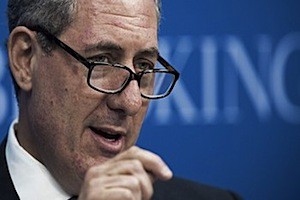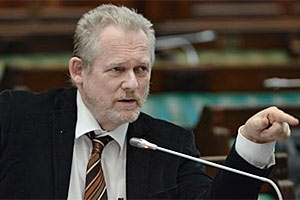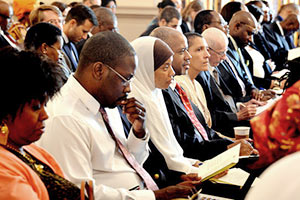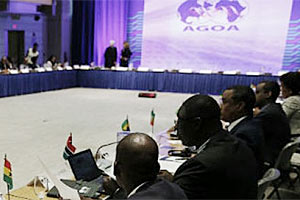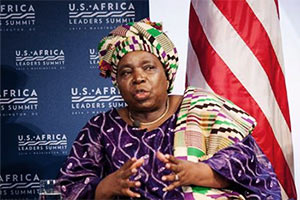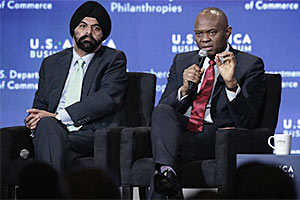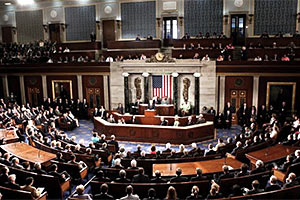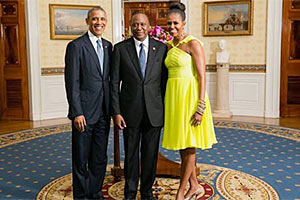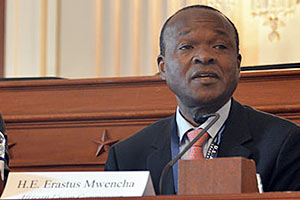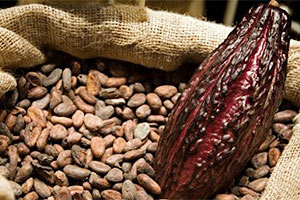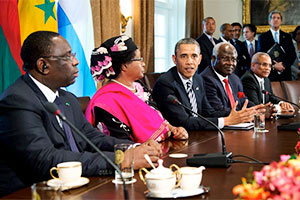Testimony of United States Trade Representative Michael Froman Before the Senate Finance Committee on AGOA
Thanks very much Chairman Wyden, Ranking Member Hatch, Members of the Committee, and thank you for inviting me here to today to testify about AGOA.
AGOA, as you’ve noted, has been the cornerstone of America’s economic engagement with sub-Saharan Africa for the past fourteen years. And it has had some very important successes. U.S. imports from AGOA countries have grown from $8.2 billion in 2001 to $26.8 billion in 2013, a threefold increase. Non-oil AGOA trade has increased almost fourfold during the same period from $1.4 billion to almost $5 billion. US direct foreign investment (FDI) stock in sub-Saharan Africa has also increased from approximately $9 billion to $35 billion. And according to the African Coalition on Trade, AGOA-related investment has resulted in the creation of some 300,000 jobs in sub-Saharan Africa and almost 120,000 jobs here in the United States.
But there clearly is more work to be done. Utilization of AGOA is low and uneven. The bulk of U.S. imports under AGOA come from a handful of countries. And although we are beginning to see increasing diversification, exports under the program are still concentrated in a few sectors. And finally, while the growth in exports has been impressive over the life of AGOA, in absolute terms the level of exports is quite low. We can and must do better.
And to that end, last August I launched a comprehensive review of AGOA to examine both its successes over the last 14 years, as well as areas where it might be improved. And as we undertook this exercise, we were mindful too that the Africa of 2000 is not the Africa of 2014. Six of the ten fastest growing economies in the world are in Africa. And African countries are increasingly moving away from unilateral preference programs and entering into reciprocal trading relationships, including with the European Union. As we think about AGOA’s future, we need to consider how the U.S.-Africa trade relationship should evolve over time as well.
We draw three main conclusions from our review:
First, while tariff preferences are important, they are not sufficient. African countries face constraints to trade that range from inadequate and high cost infrastructure, particularly in the energy and transportation sectors; burdensome customs procedures and other border barriers impacting Africa’s regional and global trade; difficulties complying with agricultural, safety and marketing standards (including sanitary and phytosanitary requirements); limited skilled labor; and low productivity and competitiveness in non-oil, value-added products. And, despite growing business interest in Africa, AGOA countries also continue to face difficulties finding partners in the United States.
For AGOA to reach its full potential, it must be situated at the core of a comprehensive trade and investment strategy, an AGOA compact that targets the full range of the supply-side constraints to trade in Africa that creates new markets for African products, harnesses growing private sector interest in trade and investment, and promotes regional integration and value-added production. Now this also includes moving forward with implementation of the WTO Trade Facilitation Agreement concluded in Bali last year, which, by OECD estimates, could lower trade costs for developing countries in trade by up to 15 percent if fully implemented.
Second, there are some areas in which the AGOA program itself can be updated and improved. This, of course, is the province of Congress, but the findings of our review may be helpful as you consider these issues. For example:
We look forward to working with you as you explore these and other issues in the process of moving forward with renewal.
Third, and finally, while the administration remains firmly committed to securing AGOA renewal, we need to begin working with our African partners to develop a vision of a trade relationship that goes beyond one-way preferences in the mid- to long-term. As I said, today’s world is different from the one when AGOA was first enacted, both in Africa and in its relations with major trading partners. Against this backdrop, we need to consider the way ahead and how different tools – from unilateral preference program, to reciprocal trade agreements – might evolve to be used with different partners to help us achieve our goals of broad-based economic growth and prosperity.
With that, let me thank you again with the invitation to testify, and I am happy to take your questions.


